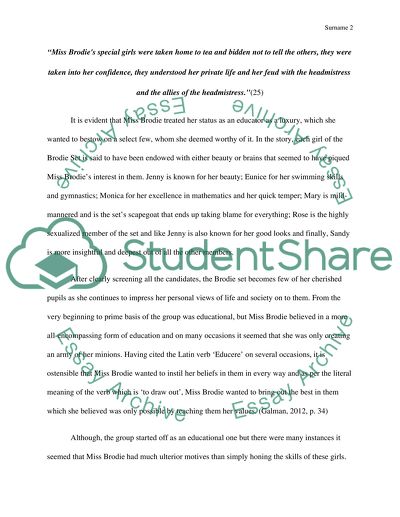Cite this document
(“The Prime of Life and the Brodie Set by Muriel Spark Essay”, n.d.)
Retrieved from https://studentshare.org/literature/1404491-the-prime-of-life-and-the-brodie-set-by-muriel-spark
Retrieved from https://studentshare.org/literature/1404491-the-prime-of-life-and-the-brodie-set-by-muriel-spark
(The Prime of Life and the Brodie Set by Muriel Spark Essay)
https://studentshare.org/literature/1404491-the-prime-of-life-and-the-brodie-set-by-muriel-spark.
https://studentshare.org/literature/1404491-the-prime-of-life-and-the-brodie-set-by-muriel-spark.
“The Prime of Life and the Brodie Set by Muriel Spark Essay”, n.d. https://studentshare.org/literature/1404491-the-prime-of-life-and-the-brodie-set-by-muriel-spark.


